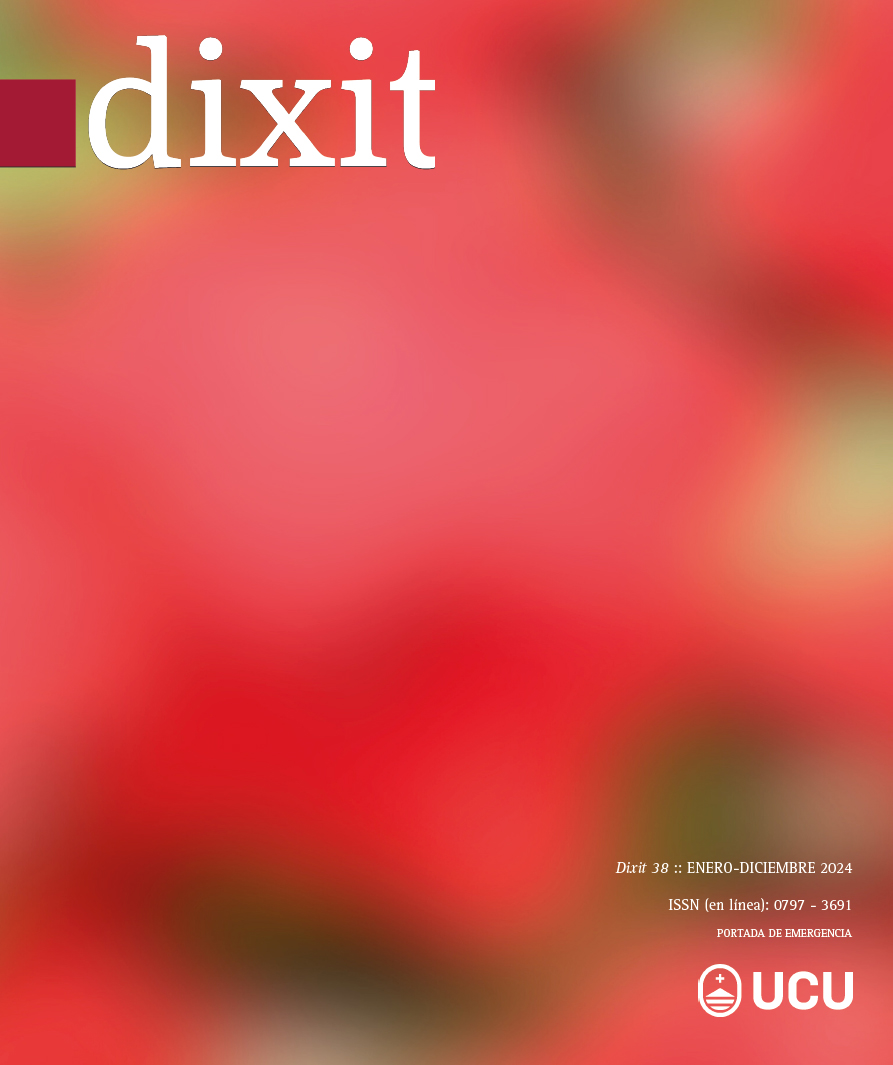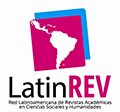Knowing about the body, knowing through the body: health communication from an ethics of care
DOI:
https://doi.org/10.22235/d.v38.3512Keywords:
health communication, hegemonic biomedical model, situated narratives, ethics of care, feminist perspectivesAbstract
The COVID-19 pandemic generated a global crisis that brought various aspects of human existence into tension. In the field of health, the hegemonic biomedical model prevailed in explaining and offering solutions. However, its biologistic perspective proved insufficient, prompting questions and reflections on the sociohistorical and situated dimension of bodies and challenging capitalist modes of production in their relationship with the living. This article undertakes a critical review of the biomedical model and then engages in dialogue with contributions from other fields of knowledge regarding alternative ways of conceptualizing bodies, from bodies themselves and their relationship with the living. It is argued that, through a dense and vitalist understanding of the concept of health, and by incorporating insights from care perspectives and feminist debates, alternative frameworks can be constructed for thinking about communication in this field.
Downloads
References
Agamben, G. (2007). Qu´est-ce qu´un dispositif? Éditions Payot & Rivages.
Bardet, M. (2018, 8 de mayo). ¿Cómo hacernos un cuerpo? Entrevista con Suely Rolnik. Lobo suelto! https://lobosuelto.com/como-hacernos-un-cuerpo-entrevista-con-suely-rolnik-marie-bardet/
Cabral, X., & Bejarano Biglia, F. (2021). Podcasts feministas para comunicar la salud. Narrativas divergentes hacia la justicia erótica. EXT, (13). https://revistas.unc.edu.ar/index.php/ext/article/view/36104
Cabral, X., & Mendizábal, V. (2021). Comunicar la salud desde una perspectiva feminista e intercultural. Algunas aproximaciones a las prácticas ya la creación de contenidos en contextos situados. RevCom, (12), e052. https://doi.org/10.24215/24517836e052
Cragnolini, M. (2020). Ontología de guerra frente a las zoonosis. En M. Svampa, M. Cragnolini, S. Ribeiro, M. Aizen, M. P. López, E. Rodríguez Alzueta, R. Spregelburd, A. Petruccelli, F. Mare, L. Pasquinelli, B. Bilbao, C. Borro, F. Menéndez, A. Kaufman, L. Méndez, & G. Agamben, La Fiebre (pp. 39-48). ASPO. https://idihcs.fahce.unlp.edu.ar/wp-content/uploads/2020/05/la-fiebre-aspo.pdf
Cúbica Podcast. (2021, junio). Nicolás, Córdoba [Episodio de podcast de audio]. Pandemia Adentro. Vivencias y experiencias de la vacunación. Spotify. https://open.spotify.com/episode/26VsGJuS22isKguf56iK88?si=cc6a87b9e06f4b4c
Cúbica Podcast. (2022, enero). Achatar la curva: vacunas, redes de cuidado e infodemia [Podcast de audio]. Spotify. https://open.spotify.com/episode/6nyfnPGFIHj6xDPppPCKk6?si=1b06eb9d10f7451d
Deleuze, G. (1990). ¿Qué es un dispositivo? En E. Balibar, G. Deleuze, H. L. Dreyfus, M. Frank, A. Glücksmann, B. Gots, Michel Foucault, filósofo (pp. 155-163). Gedisa.
Drazile, N. (2021). El cuerpo como objeto del discurso médico. Análisis del discurso médico en la Cátedra Semiología de la Facultad de Medicina de la Universidad Nacional de Córdoba [Trabajo de grado]. Universidad Nacional de Córdoba.
Espoz Dalmasso, M. B. (Coord.). (2021). I Memorias del CIPeCo. Socialización de resultados en tiempos de pandemia. Universidad Nacional de Córdoba. https://rdu.unc.edu.ar/bitstream/handle/11086/18663/Memorias%20CIPeCo%20%285%29%20%282%29.pdf?sequence=1&isAllowed=y
Fernández, F., & Verzeñassi, D. (2023, 15 de mayo). Salud socioambiental: una mirada desde los cuerpos- territorios. InSSA. https://saludsocioambiental.org.ar/ssa/salud-socioambiental-una-mirada-desde-los-cuerpos-territorios/
Foucault, M. (2014). El nacimiento de la clínica. Una arqueología de la mirada médica. Siglo XXI. (Trabajo publicado originalmente en 1963)
Haraway, D. (2017). Manifiesto de las especies de compañía: Perros, gentes y otredad significativa. Bocavulvaria Ediciones.
Haraway, D. (2022). Seguir con el problema. Generar parentesco en el Chtuluceno. Consonni.
Hersch-Martínez, P., & Salamanca-González, M. G. (2022). El cuidado y los procesos de atención-desatención como referentes analíticos y operativos para la salud colectiva. Revista Facultad Nacional de Salud Pública, 40(1), e345191. https://doi.org/10.17533.udea.rfnsp.e345191
Kohn, E. (2021). Cómo piensan los bosques. Hekht.
Lalonde, M. (1974). A New Perspective on the Health of Canadians: a Working Document. https://fundadeps.org/recursos/Informe-Lalonde/
Le Breton, D. (2002). Antropología del cuerpo y modernidad. Nueva Visión.
Menéndez, E. (2009). De sujetos, saberes y estructuras. Introducción al enfoque relacional en el estudio de la salud colectiva. Lugar Editorial.
Michalewicz, A., Pierri, C., & Ardila-Gómez, S. (2014). Del proceso de salud/enfermedad/atención al proceso salud/enfermedad/cuidado: elementos para su conceptualización. Anuario Investigación, 21, 217-224. http://www.redalyc.org/articulo.oa?id=369139994021
Organización Mundial de la Salud. (1986). Carta de Ottawa para la promoción de la salud. https://www3.paho.org/hq/dmdocuments/2013/Carta-de-ottawa-para-la-apromocion-de-la-salud-1986-SP.pdf
Svampa, M. (2020). Reflexiones para un mundo post- coronavirus. En M. Svampa, M. Cragnolini, S. Ribeiro, M. Aizen, M. P. López, E. Rodríguez Alzueta, R. Spregelburd, A. Petruccelli, F. Mare, L. Pasquinelli, B. Bilbao, C. Borro, F. Menéndez, A. Kaufman, L. Méndez, & G. Agamben, La Fiebre (pp. 17-38). ASPO. https://idihcs.fahce.unlp.edu.ar/wp-content/uploads/2020/05/la-fiebre-aspo.pdf
Vinciguerra, L. (2020). La semiótica de Spinoza. Cactus.
Published
How to Cite
Issue
Section
License
Copyright (c) 2024 Dixit

This work is licensed under a Creative Commons Attribution 4.0 International License.
From issue number 32 onwards all contents are licensed under the Creative Commons Attribution 4.0 International License (CC BY 4.0).
Issues number 29-31 are licensed under the Creative Commons Attribution-NonCommercial 4.0 International License.
The contents corresponding to number 28 and earlier editions are under the Creative Commons Attribution-NonCommercial-ShareAlike 4.0 International License.


















